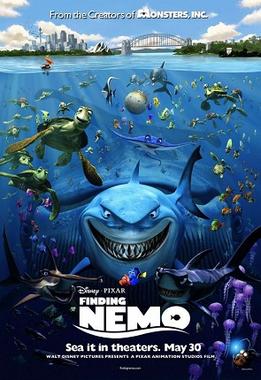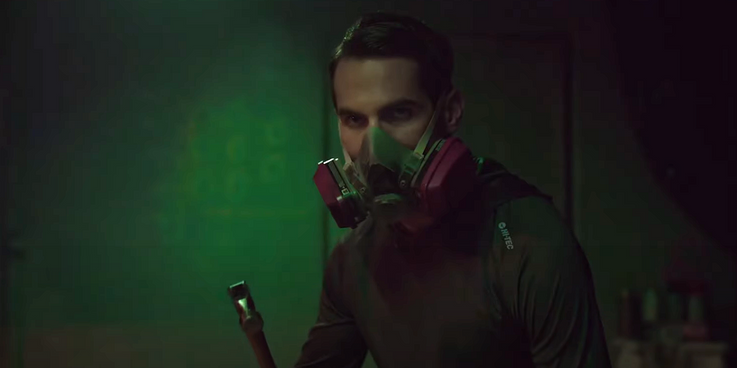WARNING: spoilers below
While the cinematic and literary roots of Film Noir stretch back well before the 40's, it's only natural that the genre would truly begin to flourish during that decade, as it obviously saw the global devastation of World War II, an event that brought a newfound paranoia and anxiety upon the world, even among the nations that were left relatively unscathed in its wake. And so, keeping that in mind, it only makes sense that Carol Reed's The Third Man had such a close connection to that conflict, as the film expertly balances its status as a living history lesson with being a wonderful piece of entertainment at the same time, telling a fantastic mystery set amongst the rubble of post-war Europe, and becoming one of the greatest Classical-era Noirs ever made in the process, if not, at the risk of hyperbole, the greatest.
It tells the story of Holly Martins, a self-described "hack writer" of pulp Westerns, who travels to Vienna in order to accept some sort of vague job offer from Harry Lime, an old friend of his. However, as soon as the hapless Holly arrives there, he's shocked to learn that Lime recently died, apparently killed in a freak car accident... that is, until a number of details fail to add up, forcing Holly to reopen the closed case himself, connecting with an old flame of Lime's that refuses to burn out, all the while continually dodging the murderous denizens of the local underworld, as he digs ever deeper into the seedy past of his "dead" friend, buried amongst the labyrinthian rubble of a post-war Vienna.
It's a fairly rich, multi-layered mystery, but rather than getting tangled up in unnecessarily convoluted "plot knots" like such genre peers as The Big Sleep, Graham Greene's sharply-written screenplay instead remains streamlined throughout, never becoming overly complicated just for the sake of it, but only throwing new wrinkles into the story when they're strictly needed, which keeps things intriguing without ever overwhelming us in the process. Anyway, speaking of other Noirs, The Third Man also distinguishes itself from them with its unexpected sense of fun, forgoing the fatalism that often characterized the genre with its generally lighter tone, literally from the start, with the close-up of Anton Karas's zither as it begins to play the quirky, iconic score, and continuing with a number of playful or comedic moments throughout, whether it be the sight of a small child leading a mob through the streets of Vienna, a hilarious misunderstanding involving a unwanted chauffer, or the unexpected appearance of a talking parrot at a most inconvenient moment.
All that being said though, there's still absolutely no doubt that The Third Man is a work of Film Noir on the whole, whether it be the deep, monstrously distorted shadows of its high-contrast lighting, or the way that the off-kilter dutch angles of Robert Krasker's virtuosic cinematography create a sort of topsy-turvy, funhouse mirror of reality. And, character-wise, the fresh faced, almost newborn-like naivety of Joseph Cotten's Martins starts to give way to the kind of cynicism we expect from a Noir protagonist, as he's repeatedly splashed with the cold water of Harry's greedy, sociopathic behavior throughout, with Lime himself making a tremendous impact with very little actual screentime, particularly during one of the greatest character reveals ever filmed.
But of course, despite the presence of such screen icons as Orson Welles, the real star here is Vienna itself, as the film was filmed on-location amongst the rubble of the once-glorious national capital, still recovering from the continent-wide post-war "hangover", as a devastated city divided up among the authorities of various post-war powers, with the classy architecture of the buildings that were lucky enough to survive the war, and the rubble of the ones that weren't, providing a concrete maze for the characters to survive, and concealing a new mystery around each and every one of its sharp corners, giving the city just as much character as any of the actual, well, characters. It's this conspiratorial atmosphere the locale provides that further sets The Third Man apart as a film, makes it one of the finest examples of its genre, and ultimately creates an experience that's just as fresh and entertaining today as it was over half a century ago; now, if you'll excuse me, I think I'm going to go get some zither lessons.
While the cinematic and literary roots of Film Noir stretch back well before the 40's, it's only natural that the genre would truly begin to flourish during that decade, as it obviously saw the global devastation of World War II, an event that brought a newfound paranoia and anxiety upon the world, even among the nations that were left relatively unscathed in its wake. And so, keeping that in mind, it only makes sense that Carol Reed's The Third Man had such a close connection to that conflict, as the film expertly balances its status as a living history lesson with being a wonderful piece of entertainment at the same time, telling a fantastic mystery set amongst the rubble of post-war Europe, and becoming one of the greatest Classical-era Noirs ever made in the process, if not, at the risk of hyperbole, the greatest.
It tells the story of Holly Martins, a self-described "hack writer" of pulp Westerns, who travels to Vienna in order to accept some sort of vague job offer from Harry Lime, an old friend of his. However, as soon as the hapless Holly arrives there, he's shocked to learn that Lime recently died, apparently killed in a freak car accident... that is, until a number of details fail to add up, forcing Holly to reopen the closed case himself, connecting with an old flame of Lime's that refuses to burn out, all the while continually dodging the murderous denizens of the local underworld, as he digs ever deeper into the seedy past of his "dead" friend, buried amongst the labyrinthian rubble of a post-war Vienna.
It's a fairly rich, multi-layered mystery, but rather than getting tangled up in unnecessarily convoluted "plot knots" like such genre peers as The Big Sleep, Graham Greene's sharply-written screenplay instead remains streamlined throughout, never becoming overly complicated just for the sake of it, but only throwing new wrinkles into the story when they're strictly needed, which keeps things intriguing without ever overwhelming us in the process. Anyway, speaking of other Noirs, The Third Man also distinguishes itself from them with its unexpected sense of fun, forgoing the fatalism that often characterized the genre with its generally lighter tone, literally from the start, with the close-up of Anton Karas's zither as it begins to play the quirky, iconic score, and continuing with a number of playful or comedic moments throughout, whether it be the sight of a small child leading a mob through the streets of Vienna, a hilarious misunderstanding involving a unwanted chauffer, or the unexpected appearance of a talking parrot at a most inconvenient moment.
All that being said though, there's still absolutely no doubt that The Third Man is a work of Film Noir on the whole, whether it be the deep, monstrously distorted shadows of its high-contrast lighting, or the way that the off-kilter dutch angles of Robert Krasker's virtuosic cinematography create a sort of topsy-turvy, funhouse mirror of reality. And, character-wise, the fresh faced, almost newborn-like naivety of Joseph Cotten's Martins starts to give way to the kind of cynicism we expect from a Noir protagonist, as he's repeatedly splashed with the cold water of Harry's greedy, sociopathic behavior throughout, with Lime himself making a tremendous impact with very little actual screentime, particularly during one of the greatest character reveals ever filmed.
But of course, despite the presence of such screen icons as Orson Welles, the real star here is Vienna itself, as the film was filmed on-location amongst the rubble of the once-glorious national capital, still recovering from the continent-wide post-war "hangover", as a devastated city divided up among the authorities of various post-war powers, with the classy architecture of the buildings that were lucky enough to survive the war, and the rubble of the ones that weren't, providing a concrete maze for the characters to survive, and concealing a new mystery around each and every one of its sharp corners, giving the city just as much character as any of the actual, well, characters. It's this conspiratorial atmosphere the locale provides that further sets The Third Man apart as a film, makes it one of the finest examples of its genre, and ultimately creates an experience that's just as fresh and entertaining today as it was over half a century ago; now, if you'll excuse me, I think I'm going to go get some zither lessons.



















